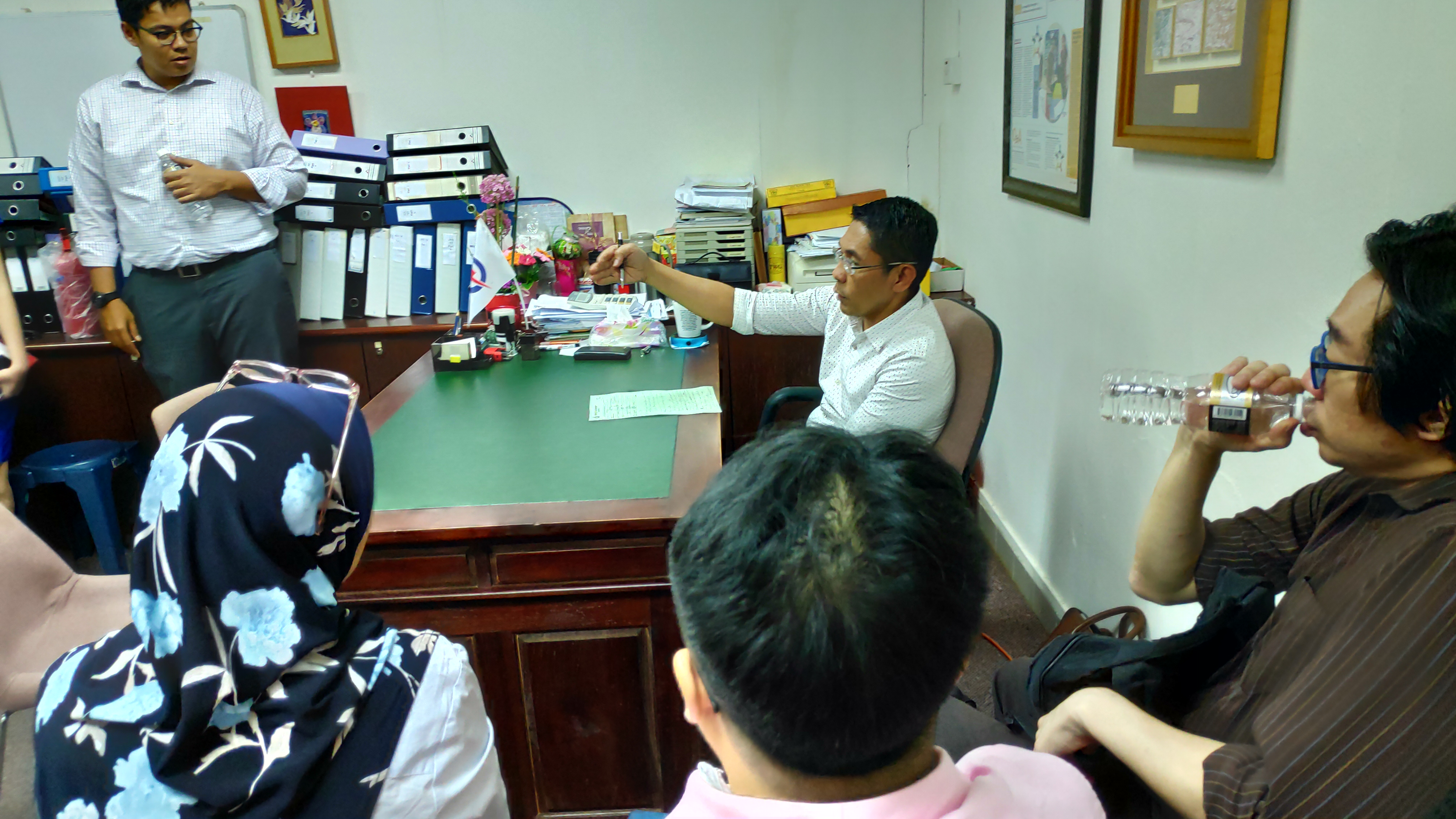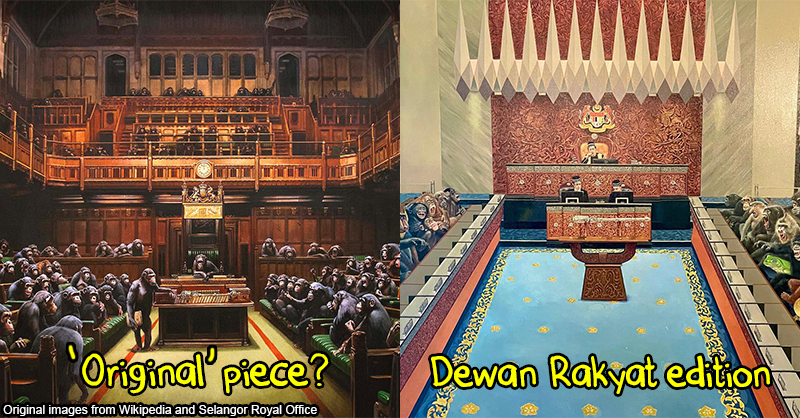Party… whips?! Five weird terms you may find at Dewan Rakyat
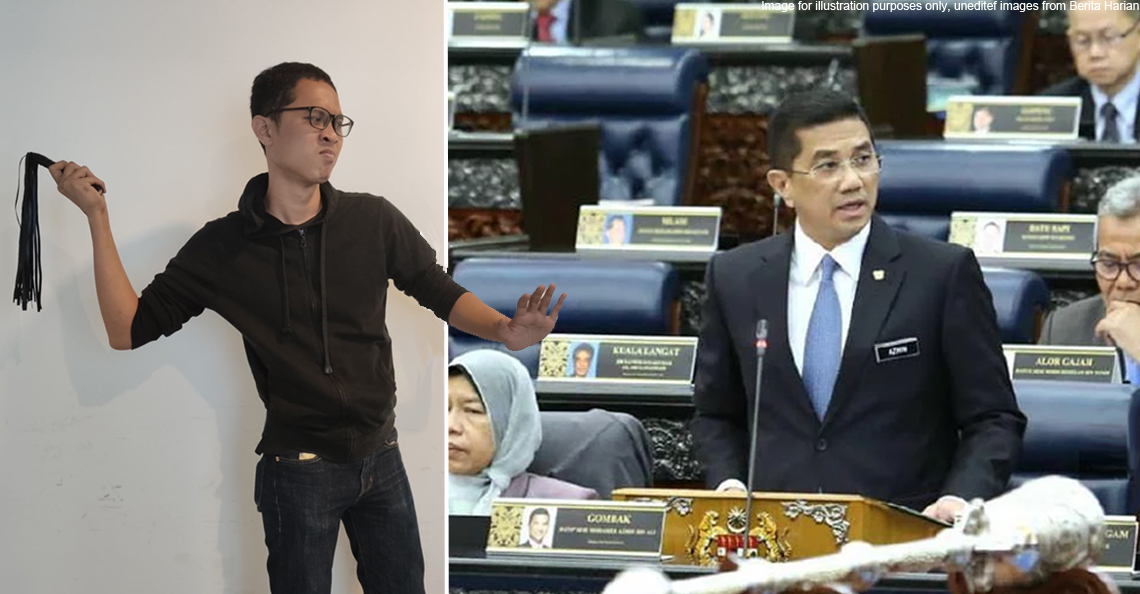
- 588Shares
- Facebook554
- Twitter7
- LinkedIn8
- Email8
- WhatsApp11
If you’ve been seeing a lot of news headlines about Parliament, MPs, or Dewan Rakyat – it’s because this is the last parliamentary session for 2019. Parliament sessions happen three times a year, and it’s usually a time where every news portal would have reporters camping on Parliament grounds eagerly awaiting to report the latest updates coming out of Dewan Rakyat.
This is because the Malaysian Parliament is where laws are made or changed, and hard-hitting discussions are carried out – all to create a grater Malaysia.
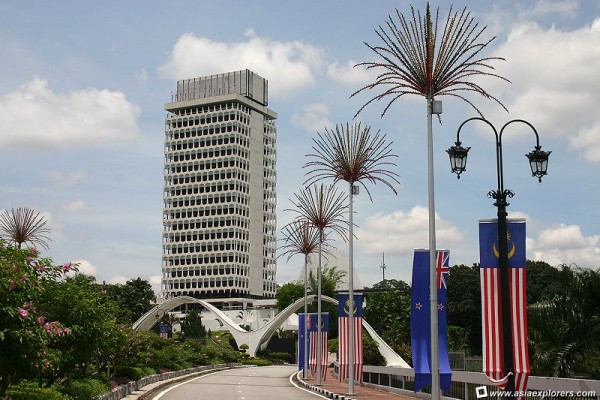
Btw, we’re using the terms “Parliament” and “Dewan Rakyat” interchangeably but there’s actually a small technical difference between the two terms, which you can read about here.
So anyway, here you are reading the news and trying to keep up to date with the political goings-on so that you can impress your friends at the mamak at how politically aware you are…. and then you see this headline:
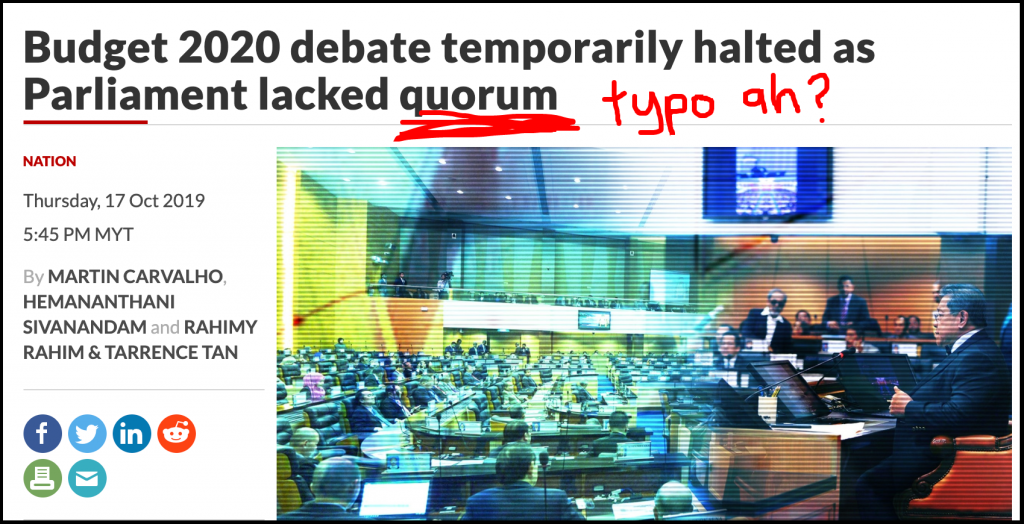
What on earth is a “Quorum”? For that matter, does a “Party Whip” mean that 50 Shades of Grey isn’t only referring to our MPs’ fashion choices?
Before you start on the fan fiction between your favorite politicians, here’s 5 of the most common terms we found being used in newspapers – explained.
1. “Quorum”
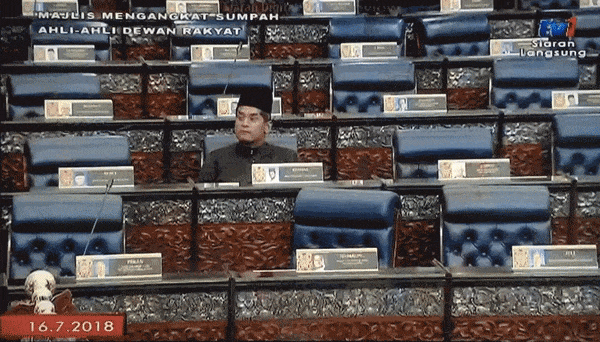
According to Cambridge Dictionary, a quorum is “the smallest number of people needed to be present at a meeting before it can officially begin and before official decisions can be taken”. Kind of like how teachers used to take attendance with us before class can start.
Here are the step-by-step guide of how quorum operates in Dewan Rakyat:
- A quorum is the number of MPs and ministers needed to fill up the seats within the house to proceed with debates and discussions
- There are currently 222 members in Dewan Rakyat, otherwise known as Members of Parliament (MPs)
- According to Standing Order 13, it is compulsory for 26 out of 222 members to be present in the house
- If there is a lack of quorum, the Speaker has to ring a bell to summon members who are in the building to enter the house
- There is a grace period of two minutes for MPs to enter
- When the two minutes have passed, and there is still a lack of quorum, then the Speaker adjourns (postpones) the meeting until the next day
The reason for the headline you saw in the introduction is because, in this current Parliament sitting alone, there have been two instances where Dewan Rakyat proceedings had to be halted due to lack of quorum, on the 17th of October and 20th of November respectively.
As you might guess, MPs not showing up is a pretty big deal as it can stall the Parliamentary process (not to mention it’s bad PR). Dr. M has recently suggested that Pakatan Harapan MPs’ attendance in the Dewan Rakyat could be a factor in whether or not they’ll still maintain their position in the next Cabinet Reshuffle.
2. “Backbenchers”
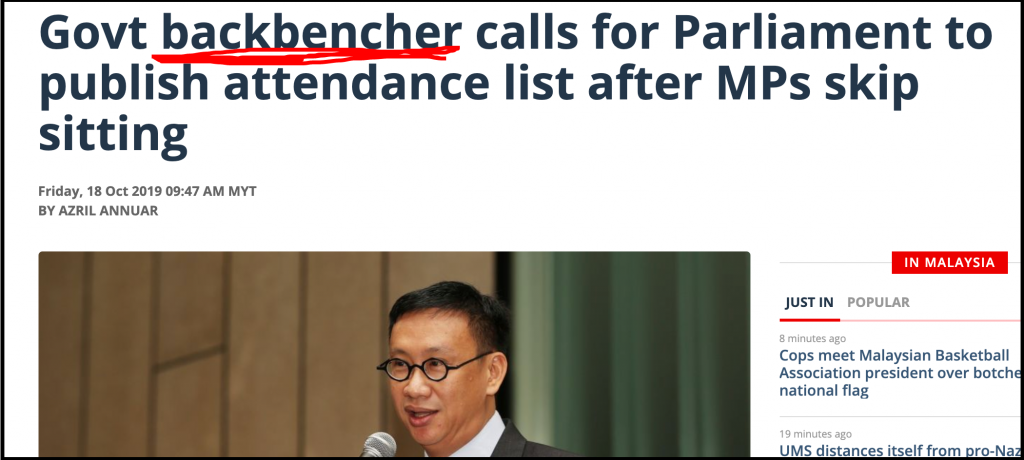
Take a look at these names:
- Lim Kit Siang
- Anwar Ibrahim
- Nurul Izzah Anwar
- Najib Razak
You’d think that, in the current government, they’ll be holding some prominent positions or be like a “lead MP” or something.
But you’d be wrong.
Yes, they are all pretty big names in the Malaysian political arena as every word they say or write are met hungry eyes and eager ears. However, when they are in Dewan Rakyat, alongside ministers and MPs in the opposition opposition’s shadow ministry, they are known as backbenchers.
And yes, backbencher is exactly what it sounds like – they sit in the back.
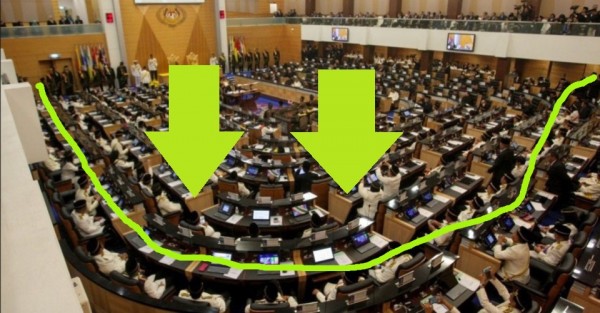
Those who sit at the front benches of Dewan Rakyat and serve as spokespeople of their parties are called frontbenchers, and they are either Cabinet ministers or MPs holding official positions in the opposition parties. So with that reasoning, backbenchers are MPs who are neither Cabinet ministers nor hold official positions in their parties.
More specifically, a backbencher can be:
- An MP who has not been appointed to high office
- A senior political figure retreated from the government
- An MP who was not chosen to sit in their party’s shadow ministry
- Someone who prefers a background influence rather than the spotlight
While it may seem that backbenchers have comparatively less power to influence the policymaking process, they still represent their constituents and will bring up the issues and concerns of the people. And, as evidenced, some backbenchers are prominent enough to have their voices carry significant weight…… they just may need to speak up a little louder from the back.
3. “Question time”
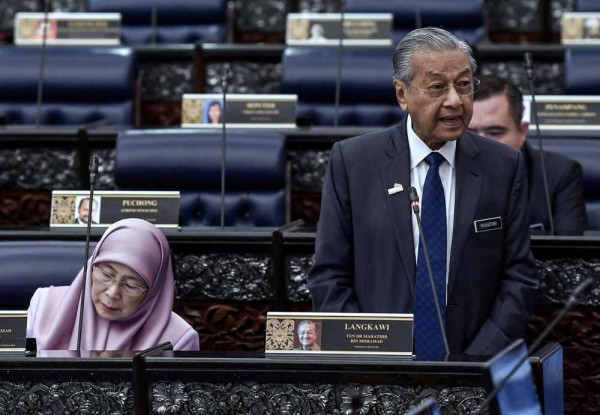
The morning session for each Dewan Rakyat meeting – 10a.m. to 1p.m. – is allotted for question time. If you’re thinking of those times in primary school where the teacher grills you on the multiplication table, that’s exactly what it is! ….kinda.
Parliament Question Time (QT) is a fixed period where any MP can ask any minister questions regarding government policies and bills in discussion, and the minister MUST answer them. This is to (allegedly) ensure that ministers are held responsible, accountable, and transparent on their policies and decisions. Needless to say, this is also where most of the drama happens, with MPs and ministers veering off topic, coming to shouting matches and calling each other names.
Here’s how it goes:
- MPs prepare the questions beforehand for the ministers, which can be found as Order Paper on the Parliament website
- Ministers prepare answers to the questions and read them out at the morning sessions, known as ‘Jawapan Lisan‘
- All MPs are allowed two supplementary (related) questions upon hearing the answers
- MPs and ministers are given ten minutes each to ask and answer
However, in this current parliament sitting, a new Question Time was introduced – specifically for the Prime Minister – as part of Pakatan Harapan’s election promises. So if you see PMQT in the headlines, you’ll know what it means.
4. “Party whip”
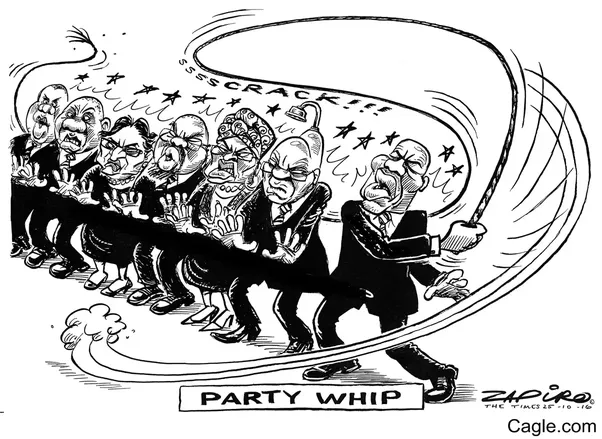
Yep, you read that right – we’re talking about party whips.
….
Okay now that you guys have stopped laughing, according to the Cambridge Dictionary, the whip is “a member of a political party in Parliament whose job is to make certain that other party members are present and that they vote in a particular way“.
In Malaysia, each political party will elect a party whip to ensure party discipline. They’ll have to do stuff like help with managing parliamentary affairs, maintain quorum and other random stuff according to the party leaders. Think of them like the discipline teachers of political parties for Parliamentary affairs.
…to ensure that MPs in their party behaved as a single horde and not run off in their own directions trying to be independent or “vote according to their conscience” – M. Veera Pandiyan in The Star
Currently, the known chief whips of each major party are:
- PKR: Johari Abdul
- DAP: Anthony Loke
- PAS: Takiyuddin Hassan
- BN: Ismail Sabri
- AMANAH: Wan Anwar
- GPS: Fadillah Yusof
5. “Hansard”
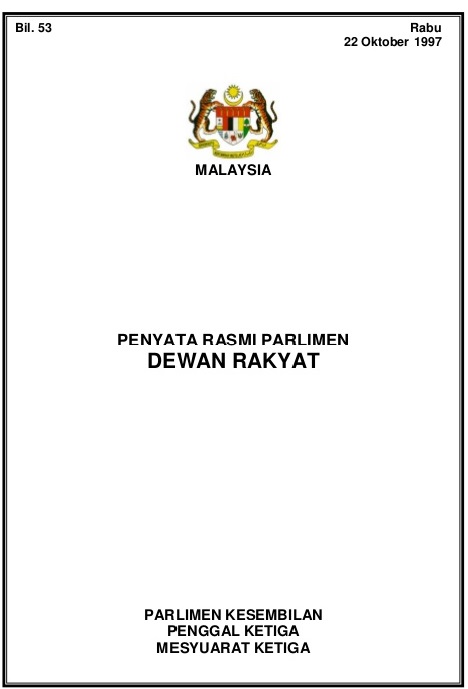
This one very simple la okay. You know how if you go important meetings, normally got a secretary or intern to take notes for minutes of meeting? The Parliamentary hansard is basically that lor – a fancy name for transcripts of the debates that happen in the Dewan Rakyat. The dictionary this time defines a hansard as “the official published report of debates in the Parliament“.
It’s essentially a verbatim record of what was said in a Dewan Rakyat meeting, be it question time or debate, incorporating questions and answers on the official Parliament website. The hansard reports serve as the most concrete evidence for all things said, debated, and argued in any Parliamentary meeting. With a hansard, no one can deny anything they have ever said in a Dewan Rakyat meeting, because one can easily whip out the hansard of the day and show them the receipts.
Parliamentary hansards can be found on the official website, where each document details the proceedings of each day, edited by the heroes who are hansard editors. But they won’t tokok tambah anything they like la; they only correct mistakes and omit repetitions in the report to provide clarity and avoid confusion and ambiguity.
You can also invite yourself to a Dewan Rakyat session to see one yourself

To be fair, the above five terms are not the only concepts that help the functionality of Parliament sittings and Dewan Rakyat meetings, but they are some of the most important elements that push things along in the building. If you wanna learn more about these super technical terms to wow your friends while having supper at the mamak, you can always look up even more of them.
Or… you could just invite yourself to sit in at Dewan Rakyat meeting, since the current Parliament sitting will continue until 5th of December. Yes, you can do that, and we even wrote an article on the experience, along with five other things that you probably didn’t know about the Malaysian Parliament. For example, did you know that there is a deer park at the Parliament building?
You will probably be able to learn more than we can even tell you if you’re there for a firsthand experience. Who knows? Maybe it’ll be your lucky day and you can witness some MPs or ministers have it out right in the middle of the house.
- 588Shares
- Facebook554
- Twitter7
- LinkedIn8
- Email8
- WhatsApp11

